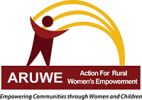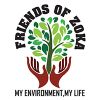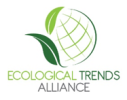Uganda
Uganda covers an area of 24.1 million hectares of which 82% is mainland, 14% is open water and 4% is permanent swamp. It is endowed with diversity of animal and plant species and ranks among the top ten most bio-diverse countries in the world. Uganda’s economy is heavily dependent on biodiversity including the fishing industry, tourism (from wildlife biodiversity), livestock industry, commercial and subsistence use of medicinal plants, and ecotourism, among others.
The Ministry of Water and Environment, in 2019, estimated forest cover at 12.4 per cent (or 2.9 million hectares) of its total land area, down from 4.9 million hectares in 1990, reducing due to deforestation and forest degradation. Forests contribute 7.5 percent to Gross Domestic Product and play a big role in increasing agricultural productivity, supporting livelihoods, being a backbone to the tourism industry and the combat to climate change.
As Uganda pursues middle income status, it is faced with vagaries of development and the associated social injustices, characterized by abuse of environment and human rights, degradation of natural resources and restrictions imposed on civic spaces.
The escalation of climate change impacts as forested land that regulates micro-climate is taken up by oil and gas exploitation and related infrastructure, converted into agro-commodity plantations, which reduces the resilience of communities to impacts of climate change. The other issues include trade in charcoal which accelerates deforestation in un-protected areas, power imbalances between men and women that ruins women’s enjoyment of their full rights, restrictions on civic space for environment and human rights defenders and the need to contribute towards the attainment of the National Determined Contributions.
The Green livelihoods alliance will work in the Albertine Graben, an ecologically diverse region of Uganda. The region has a number of challenges including oil and gas exploitation and the associated infrastructure development, increasing levels of illegal trade in forest products, interest by the state to develop hydro-power plants in an ecologically sensitive environment and expansion of agrocommodities in the region despite its ecological, tourism and trans-boundary importance.
Uganda programme
The GLA programme in Uganda has three long-term objectives i) Indigenous Peoples and Local Communities sustainably govern forest landscapes; ii) the Government of Uganda and the private sector (in extractives, agro-commodities and energy) no longer drive deforestation and degradation, protect forests and human rights and implement the NDC Work Plan to address climate change; and iii) secure civic spaces for (Women) Environmental and Human Rights Defenders to secure civic space for civil society and IP&LCs leaders to speak out for their rights, livelihoods and the forest.
To achieve this, the partners will among other conduct evidence-based advocacy and lobbying that includes developing research and information generation. Use the knowledge to create and use informed social movements to reach out to duty bearers and public.
Programme partners
Ecological Trends Alliance (ETA) is a non-governmental organization with a mission to secure solutions to biodiversity, development and tourism challenges through providing biologically diverse and proven alternatives;
Friends of Zoka (FoZ) is a social movement organization that addresses concerns surrounding the deforestation and degradation of Zoka Central Forest Reserve and the associated environmental degradation in the region;
The African Institute for Energy Governance (AFIEGO) envisions a society that uses clean energy resources for equitable environmental, social and economic development whilst seeking to influence policies and practices, access to justice for redress with a view to promote transparency and accountability for good governance;
Action for Rural Women’s Empowerment (ARUWE) seeks to build capacity for CSOs to mainstream gender concerns and realities in organizational programing.




